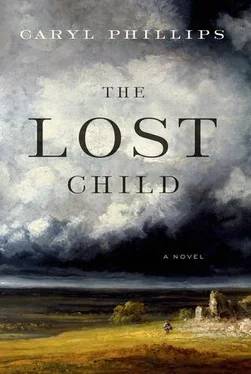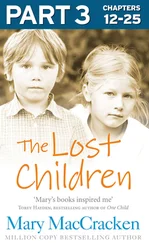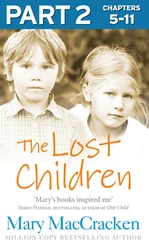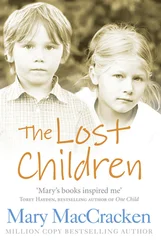Caryl Phillips
The Lost Child
She likes to sit down by the docks in a place where sunlight can discover her face. Once there, she leans back and listens to the monotony of seawater lapping against the quayside, and she has no concept of the hour. She disturbs no one, but she hears footsteps passing in each direction. She is a woman in debt who can no longer find anyone willing to employ her at the loom; she is a diminished woman who, before her time, has yielded reluctantly to age and infirmity. They call her Crazy Woman, but she smiles and forgives them. It is spring, but winter is still in the air. She puts on a sad demeanour and fumbles at the hair buttons on her dark worn coat, and then she hears a penny drop into the box and she looks up and offers a toothless grin to the tall frock-coated man who is now walking away from her. She wants to tell the man that it hasn’t always been like this, truly it hasn’t. She wants to tell him, but to what purpose? The man wears a tight smirk of derision, which signals that he imagines himself more ingenious than anyone else, and who is she to argue? These are busy men. She hears the stiff wheels of a carriage turning laboriously against the cold flags and the noisy tattoo of horses clipping diligently towards their destinations. The incessant blasting of a ship’s horn disturbs her reverie, but the sluggish rhythm of burbling water eventually begins to lull her into the receptive arms of slumber.
The seven-year-old boy stands over her and can see that she is asleep, but not at rest. The woman’s body startles, then settles, and it is clear to the boy that pain has again established residence and has no desire to quit his mother’s body. His has been a good day, and his box sings half full with a medley of coins, but he knows they must now leave, for soon it will be dark. He reaches down and takes her hand, which she snatches away from him. (I will kill you.) When she opens her eyes, the boy can see that she is suffering from an awkward upsurge of shame, for her harsh words have been misdirected, and her haul is woeful. The unblinking child stares back at her in a manner that suggests that the requirement that he bear responsibility for her well-being sits surely on his young shoulders, for after all, neither of them has any other companionship. People continue to walk by in both directions, and unable to disguise their loathing for the skeletal woman who is slumped against the ground, they simply avert their gazes. The poor boy hovers protectively over his afflicted mother, for she looks now as though she might, at any moment, abandon this discouraging world and attempt to gain access to the next.
She remembers long days in the West Indian fields digging with a rod of pointed iron under the burning sky; she remembers restless nights as black as soot listening for the sound of footsteps approaching the door and wondering whether tonight it would be her turn to be covered. But Master never came to her. (A Congo woman, too dark.) In the morning a skillet of Indian corn, or yams seasoned with peppers, would be thrust into her hut, and together with the others, she would leap up and tussle for the food like a wild beast. Having eaten, they would commence the march (Quick! Quick!) out to the fields for more digging, and weeding of grass, and gathering of stones until one day she was hoisted onto the back of a wagon full of sickly property and carried to the town square. The least of the female litter, she mounted a wooden platform and waited until all the others had been taken. She stood alone now, but the ship’s captain eventually nodded without enthusiasm, and her short time in the Indies reached an abrupt conclusion.
On her journey to the Indies it was the rats that had inspired the greatest fear, for they fed with conviction and grew huge and profited handsomely from their passage. The human cargo was chained and manacled in the hold, where they rolled to the left and then back to the right, their rotations determined by the undulating waves, but on each occasion that the vessel dipped, the cargo received the blessing of a libation of slime. Soon they were too nauseated to eat, and most were too grief-stricken to cry, and she lay surrounded by the doleful mourning of those who rotted in the darkness. They whispered in plaintive tongues that were beyond the comprehension of her half-chewed ears, and they composed themselves for their own private journeys. During the second voyage she remained anchored to the splintered floor of the captain’s cabin unless he had business with her. A crude depravity marked this man’s crumpled brow, and she soon perceived that her captor was fired with a lust for unconditional obedience. His brutish appetite rose and fell like the ship, and at the termination of his cowardly attacks he would reshackle her and then reach for his pipe and smoke the tobacco that appeared to offer him some vestige of peace in mind and body. Moving even a little caused the chains to bite urgently at her wrists and ankles, and so she would simply curl up in her corner and watch as he began to blow plumes of smoke. It troubled her that the lengthy crossing was making her dull, and so, trembling like a palm leaf, she tried hard to recall the simple dignity of a bowl from which one might eat or the long-forgotten pleasure of a few breaths of clean, pure air.
How many years have I? She unseals her eyes and sees the boy trying once more to pull her upright, and she smiles. It is true, there is no dignity in lying slumped among a sea of masts. But look, vessels at anchor! Still, like her, and she feels grateful that her child is helping her. Now she is startled by the warm water between her legs, but she welcomes the sudden flush of heat. She knows this pleasant feeling will soon pass and only the stench and irritation will remain. (I’m sorry, my child, but tribulation is upon me, and I must sleep some more before standing. Please sit with me and keep me company for one hour more, this is all I ask. Just one hour, and then we two shall leave together.) She deeply resents the fact that these people look pitifully upon her son, whom she has ruined by the example of her own indolent misery. Their foolish tongues used to ask: Can the boy speak English? Can he dress hair? Is he sober? Is he fit to wait upon a gentleman? But no, no, no. She has seen the other boys, ornately attired in silks, with silver collars and satin turbans, walking behind fair ladies so they might attend to their mistresses’ trains, or quickly administer smelling salts, or take charge of their fans. But other boys, not her child. Her son will never walk behind a fair lady. He looks down at her, his wide eyes brimming with a concern that threatens to spill over into tears. She can, however, detect that a strong and tenacious heart beats in his tiny body. This being the case, all is not lost.
* * *
As the pale sun sinks beneath the watery horizon, filth-encrusted sailors, ready to roister anew under the cover of darkness, appear from all directions. She never evokes any compassion from these men, who lurch confidently past her, their aura of superiority fed by excessive familiarity with rum and other strong liquors. The boy helps her to her feet, for they must leave before the quarter descends into violence. They stagger off, her feet clad in mismatched shoes that skid through fetid puddles of waste. (The sailors don’t see me; they never see me.) Suddenly, the shoes are temporarily held captive in the unforgiving mud of an unpaved road, but she nevertheless struggles to remain womanly in her deportment. They press on and twist and turn through a tangled nest of cobbled streets, avoiding yawning doorways where slops may unexpectedly be thrown out, climbing laboriously up worn stone steps, ducking under low-hanging tavern signs, and averting their senses from the narrow entrances to cellars. The people who have buried themselves in these hovels will venture out only after nightfall to sit around a bonfire and drink and sing before retreating to their damp and crowded burrows, where body heat alone, surreptitiously stolen from a stranger, feeds the pulse of life.
Читать дальше












